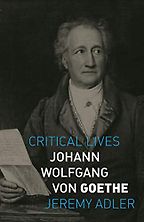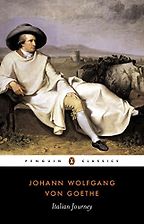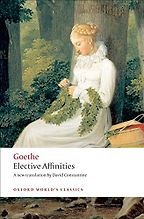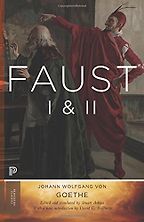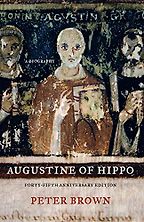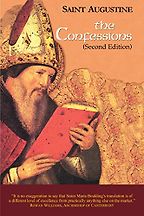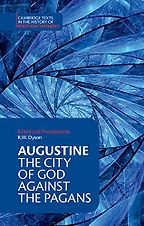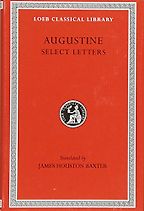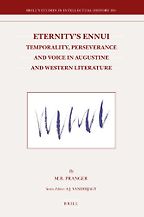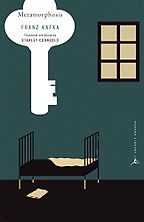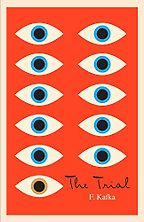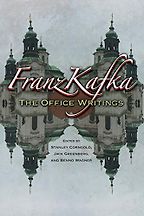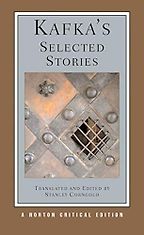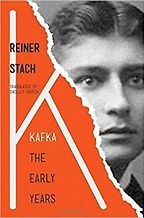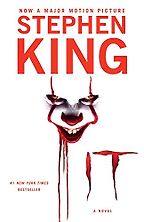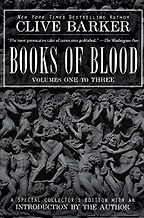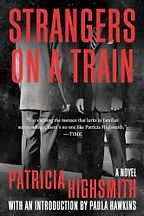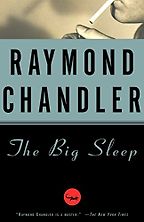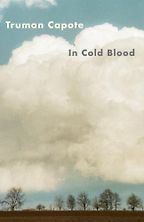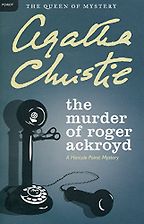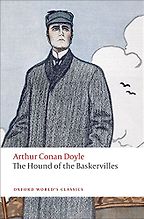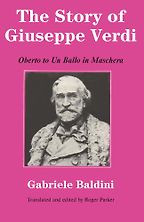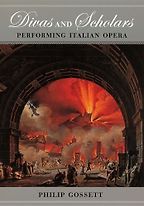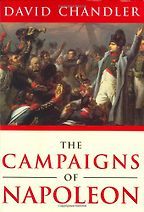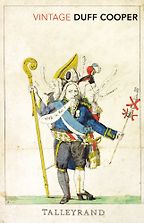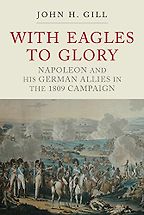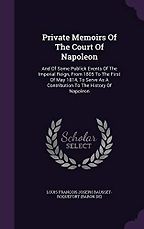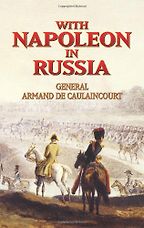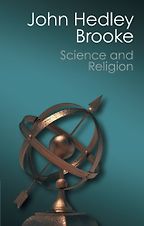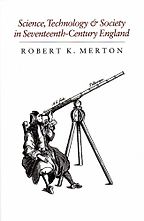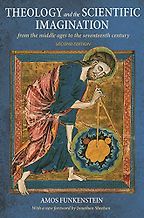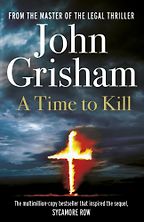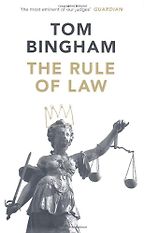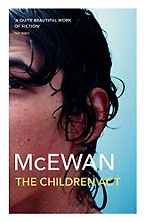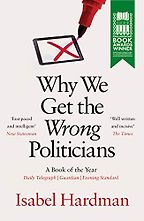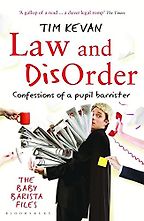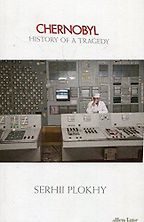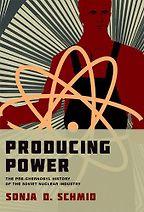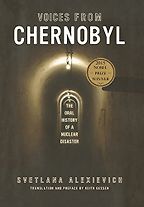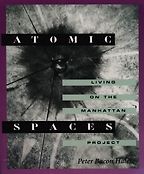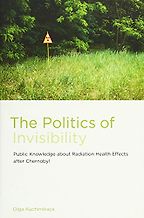Interviewer
Charles J. Styles
Interviews by Charles J. Styles
The Best Goethe Books, recommended by David E. Wellbery
Johann Wolfgang von Goethe (1749–1832) has been described as ‘the last true polymath to walk the earth’. A defining figure in German literature, Goethe coined the concept of world literature. And his literary and dramatic achievements are matched by his scientific work. David E. Wellbery, Professor of Germanic Studies at the University of Chicago and recipient of the Golden Goethe Medal, introduces us to the life and work of Goethe. He explores why figures such as Beethoven and Napoleon were magnetised to him, how Rousseau influenced Faust, and why Goethe’s Faust does not sell his soul to the devil.
The Best Augustine Books, recommended by Catherine Conybeare
Christianity has been profoundly influenced by Augustine of Hippo (354-430 CE), but the fifth-century North African bishop has impacted almost every area of western thought: philosophy, theology, political theory, linguistics, and rhetoric. His Confessions is one of the most recommended titles on Five Books, but is it really the first autobiography? Professor Catherine Conybeare introduces us to the life, thought, and personality of this controversial yet brilliant figure. She picks the best books to learn more about St. Augustine and explores how he has been unfairly maligned.
-

1
The Metamorphosis
by Franz Kafka (ed. and translated by Stanley Corngold) -

2
The Trial
by Franz Kafka -

3
Franz Kafka: The Office Writings
by Franz Kafka (ed. Stanley Corngold, Jack Greenberg, and Benno Wagner) -

4
Kafka's Selected Stories
by Franz Kafka -

5
Kafka: The Early Years
by Reiner Stach & Shelley Frisch (trans.)
The Best Franz Kafka Books, recommended by Stanley Corngold
The Best Franz Kafka Books, recommended by Stanley Corngold
“When Gregor Samsa woke up one morning from unsettling dreams, he found himself changed in his bed into a monstrous vermin”—Kafka, The Metamorphosis. This is one of the most famous opening lines in all of world literature, but how ‘Kafkaesque’ was Franz Kafka? What are our misconceptions about his life and work? Professor Stanley Corngold, one of the most influential Kafka scholars, introduces us to an “athlete of anguish”.
Scary Books, recommended by Xavier Aldana Reyes
Whether you’re scared most by graphic body horror, the uncategorisable, or the blurring of boundaries between supernatural menace and psychological unraveling, this list will have something for you. Reflecting on the complex nature of fear, Xavier Aldana Reyes surveys the best modern horror and explores whether the genre might offer consolation as well as terror.
The Best Mystery Books, recommended by David Baldacci
The best mystery books are completely unputdownable and addictive, the entertainment they provide more portable than watching TV and so much more satisfying than looking at your phone. Bestselling author David Baldacci, one of the masters of the genre and a passionate advocate for literacy and reading, talks us through some of the best mystery books ever written—as well as the contemporary authors he most admires.
The best books on Verdi, recommended by Francesco Izzo
Nearly everyone knows the photo of Verdi’s funeral, the streets of Milan packed with people paying homage to the great composer. How did the son of an innkeeper from Le Roncole become not only one of the most famous opera composers of all time but also a prominent symbol of Italy’s Risorgimento? Verdi expert Francesco Izzo discusses the books to read to best understand the man, the myths, and the music.
-

1
The Campaigns of Napoleon
by David G Chandler -

2
Talleyrand
by Duff Cooper -

3
With Eagles to Glory: Napoleon and His German Allies in the 1809 Campaign
by John H Gill -

4
Private Memoirs Of The Court Of Napoleon
by Louis François Joseph Bausset-Roquefort -

5
With Napoleon in Russia: Memoirs of General de Caulaincourt, Duke of Vicenza
by Armand de Caulaincourt
The best books on Napoleon, recommended by Andrew Roberts
The best books on Napoleon, recommended by Andrew Roberts
How did Napoleon Bonaparte, an upstart Corsican, go on to conquer half of Europe in the 16 years of his rule? Was he a military genius? And was he really that short? Historian Andrew Roberts, author of a bestselling biography of Napoleon, introduces us to the books that shaped how he sees l’Empereur—including little-known sources from those who knew Napoleon personally. Read more history book recommendations on Five Books
-

1
The Warfare Between Science and Religion: The Idea That Wouldn't Die
Edited by Jeff Hardin, Ronald L Numbers, and Ronald A Binzley -

2
Science and Religion: Some Historical Perspectives
by John Hedley Brooke -

3
Science, Technology & Society in Seventeenth Century England
by Robert K Merton -

4
Theology and the Scientific Imagination
by Amos Funkenstein -

5
The Empirical Stance
by Bas van Fraassen
The best books on The History of Science and Religion, recommended by Peter Harrison
The best books on The History of Science and Religion, recommended by Peter Harrison
Have science and religion been fundamentally at war throughout history? Are they incompatible? Has religion always held back scientific progress? These views may seem intuitive but few historians would defend them. Professor Peter Harrison looks at the complexity of science-religion interactions, including the cases of Galileo and Darwin, and considers how we frame the debate.
The best books on Justice and the Law, recommended by The Secret Barrister
The English legal system is struggling to ensure justice. Drastic government cuts and disastrous reforms have led to innocent people being let down by the system again and again. Reporting anonymously from the front line, The Secret Barrister sees it as their duty to keep the public informed. Here they discuss the books that have shaped the way they think about justice and its relation to the law.
-

1
Chernobyl: History of a Tragedy
by Serhii Plokhy -

2
Producing Power: The Pre-Chernobyl History of the Soviet Nuclear Industry
by Sonja D Schmid -

3
Voices From Chernobyl
by Svetlana Alexievich -

4
Atomic Spaces: Living on the Manhattan Project
by Peter Bacon Hales -

5
The Politics of Invisibility: Public Knowledge about Radiation Health Effects after Chernobyl
by Olga Kuchinskaya
The best books on Chernobyl, recommended by Kate Brown
The best books on Chernobyl, recommended by Kate Brown
While widely regarded as the world’s worst nuclear accident, Chernobyl’s legacy remains fiercely contested, with death tolls ranging from 31 to 200,000. MIT historian Kate Brown, who has spent years in the Chernobyl archives, picks the best books on the disaster, compares its impact with atomic bomb testing, and argues for more research into low-dose radiation exposure
